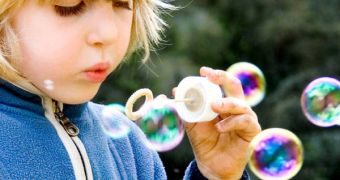Being subjected to two languages at once seems to have a very beneficial effect on infants, a new scientific study shows. After just a few months, they are able to understand learning cues far more efficiently than their peers from single-language households, a trait that they keep throughout their lives. Experts are currently considering the implications of this find and how learning two languages at once influences the young, undeveloped brain even before the kid learns to formulate words.
Cognitive Neuroscientist Jacques Mehler, from the International School for Advanced Studies, in Trieste, Italy, told LiveScience that the advantages that the children exposed to two languages had later on in life were not due to the language production process itself, but occurred on account of the type of perception that very young kids showed.
He underlined the fact that living in a bilingual household did not influence the intelligence level of these kids in any way, but simply provided them with a greater ability to understand learning cues.
Researchers have known for a long time that even infants can distinguish between sounds coming from two different languages, under the condition that the tongues are different enough. In the Trieste region, where the current investigation was conducted, the experts analyzed the behavior of children coming from single-language households, as opposed to that of kids from families that spoke both Italian and Slovenian, the main languages in the area.
In cue-reward-type tests – which implied children looking at screens when an auditory cue was played in anticipation of a reward image – bilingual babies ranked better in all of the test's variations than their mono-lingual counterparts. They exhibited larger levels of anticipatory attention, and were able to turn their heads towards various parts of the TV screen, when the reward images changed their location. By comparison, mono-lingual infants never adapted. All tests were conducted on children who were 7 months old.
“These babies don't know how to speak yet. No one can attribute knowledge of two languages to them. My conclusion is that it's a very particular component of our cognitive toolbox, and early learning certainly has no negative effect,” Mehler said.

 14 DAY TRIAL //
14 DAY TRIAL //